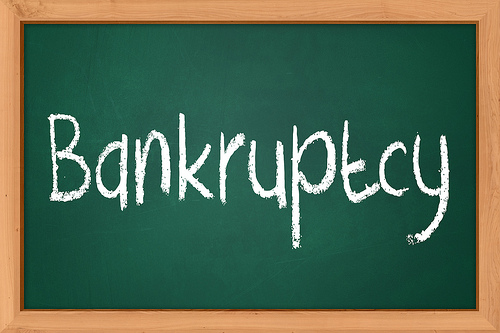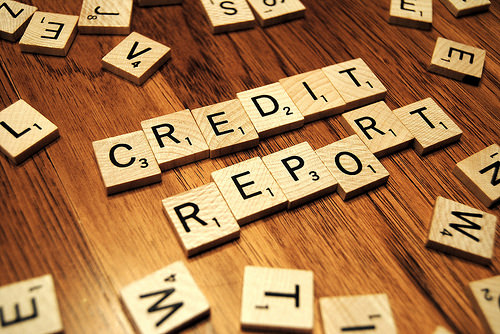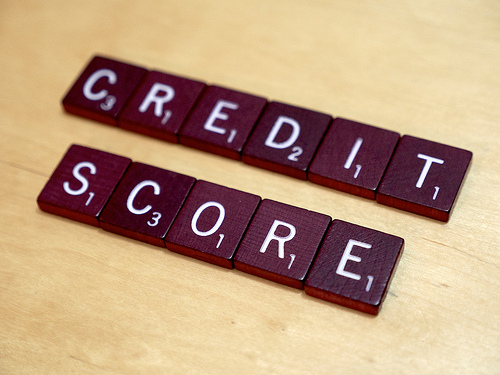
by Adam | Aug 5, 2015 | Uncategorized
Having poor credit can be financially paralyzing. But constantly checking your credit score or frequently pulling your credit report won’t necessarily fix your binding situation. To fully understand how often you should be checking your credit report, you should explore the answers to these commonly asked questions. What is a credit report? A credit report is a detailed report of your credit history. This document is prepared by a credit bureau and is used by lenders to determine your creditworthiness. Your creditworthiness is based on several factors including: Personal information Employment history Summary of credit history Account information Inquiries of your credit history Any accounts turned to a credit agency Why should you be aware of your credit report? Being aware of your credit report is necessary for several reasons, the most important being: Identity theft: With identity theft on the rise, you’ll be able to note any identity errors or reports of fraud on your report. Financial standing: If you aren’t aware you have poor credit, you’ll never begin to repair it. Errors: It’s not uncommon for reports to have errors that can damage your financial standing and credit worthiness. What is a credit score? When using credit, you are essentially borrowing money that you don’t have and promising to pay back the borrowed amount within a specific time period. Your credit score is a three-digit number that determines the likelihood of you actually paying back the money you owe. Your credit score is a number determined by the information provided in your credit report. Though credit bureaus have different evaluation methods, the most important factors a credit...

by Adam | Jul 13, 2015 | Uncategorized
Negative items on your credit report can result in a lower credit score, higher interest rates, loan denials, and more. In some cases a bad credit report can even influence your ability to get housing or a job. If there is something on your credit report that isn’t correct, it is important to correct this as quickly as possible. Writing formal letters can be intimidating and confusion, but knowing how to correctly communicate with credit reporting agencies can be crucial to correcting your credit and improving your scores. Use the following sample letter as a guide when creating your own credit dispute letter. You may need to send a letter to each credit reporting agency. In this case, be sure to alter the information where appropriate. For more instructions, see our post: How to Write a Credit Dispute Letter to Repair Your Credit. Sample Letter [First Name, Last Name] [Street Address] [City, State, Zip Code] [Date] Complaint Department [Name of Credit Reporting Agency] [Company Address] To Whom It May Concern: I am writing to inform you that the following information in my credit report is incorrect: [Name of account], [account number] [Item description (e.g.: judgment, credit account, etc)] This information is inaccurate because [Give a detailed explanation of why the information is incorrect: (E.g.: I never opened this account/I made the payment on time/the information is incomplete/ etc.)]. This incorrect information has negatively impacted my ability to [acquire a loan/ get a fair interest rate/ find rental housing/ etc.]. As a credit reporting agency, you are legally required to report accurate information. Please immediately [remove this...

by Adam | Feb 20, 2015 | Uncategorized
Worried about how bankruptcy will affect your credit score? Maybe you have already filed for bankruptcy and are working on rebuilding your credit? Whatever your situation may be, rebuilding a credit score, especially after bankruptcy, can be difficult but not impossible. The following are some facts regarding how bankruptcy affects your credit score, how you can rebuild your credit after bankruptcy, and a few myths about bankruptcy that you should be aware of: Filing for Bankruptcy Here are simple steps to filing for bankruptcy: First, you should be aware that filing for bankruptcy is not actually SIMPLE, and sometimes, depending on your situation, there are other options worth considering. Make sure you sit down with an attorney to discuss your options and to talk about filing for bankruptcy before you go about refinancing your house, filing for bankruptcy, etc. Determine whether or not you qualify for chapter 7 bankruptcy; this is based on your income compared to other similarly sized families. If not, you can try chapter 13 “debt consolidation.” Decide if you are going to file for bankruptcy on your own or if you are going to discuss your situation with a lawyer. You will have to pay somewhere between $30-$50 dollars for mandatory credit counseling. Complete all the necessary paperwork; this is where help usually comes in handy. Next, in order to file a petition with the court you will need to submit all your paperwork along with your credit counseling certificate. Attend the meeting of creditors. Within 45 days of the creditor’s meeting you will need to complete a post-filing personal financial management course. This usually...

by Adam | Feb 6, 2015 | Uncategorized
There are many places where you can get your credit score and credit report for free. Here’s a breakdown of the best. The first step to improving your credit score is to know what your credit score is in the first place. Each of the three credit bureaus is required by law to give you one free credit report per year, but they don’t have to give you your actual score for free. Often you will be charged $15 or more for access to your score, but there are many websites and companies out there who will promise to give you your credit score for free (usually as part of a free trial). To help you decide the best way to access your credit score and credit reports, here are 4 of the top companies offering free scores and reports: Annual Credit Report .com AnnualCreditReport.com is the official website authorized by the federal government where you can get your free annual credit reports. However, you can only get one free credit report per credit bureau, per year, and it doesn’t include your actual credit score. Thankfully, there are other ways to access your credit score for free. Credit.com If all you are looking for is your credit score, then you’ll get it and a little more for free at Credit.com. You’ll get your Experian score along with some free score analysis. Additionally, you won’t have to provide any credit card information and you won’t be signing up for a free trial period (so you don’t have to worry about getting automatically charged). Credit.com offers several paid products and services, including pre-paid credit cards and credit monitoring....

by Adam | Nov 21, 2014 | Uncategorized
When you print out your credit report in its entirety, the big stack of papers can be a little daunting. You can probably tell if you’ve got a great score, or one that could use a little improvement, but what does all the extra information mean? And how can you use the information contained in your credit report to improve your score and repair your credit? There’s more to a credit report than just the score. If you have a low score, then the key to improving it lies within the report itself. Here are 6 steps to unlocking the secrets of your credit report and finding ways to improve your score. Step 1: Double Check Your Personal Information for Errors At the top of your report is personal information that identifies you, including your name, present and past addresses, and employment info. If any of this is inaccurate it could negatively impact your score, so double check every little detail to make sure it’s correct. A misspelled name or incorrect address could mean that someone else’s credit history is being included on your report. When you spot errors, these are the easiest to fix. You can send a credit dispute letter to the credit bureaus or get the help of a credit repair company. The credit bureaus are required by law to fix any errors to your report in a timely manner, and at no cost to you. Step 2: Review Your Credit Summary The next portion of your credit report is your credit summary. It provides an overview of the report, including the types of accounts, number of current and...

by Adam | Oct 16, 2014 | Credit Repair, Uncategorized
Credit report errors are frustrating and difficult to repair, but they happen more often than you might think. If your credit report is full of errors, you’re not alone; and it’s your right by law to have those errors removed. You can do the legwork yourself by sending out letters to all the relevant credit bureaus and lenders, or you can hire a credit repair company to use their expertise on your behalf. Legitimate errors are common, and they come in many shapes and sizes. Here are some of the errors, discrepancies, and inaccuracies that happen most often. Inaccurate Personal Information A misspelled name, or a middle initial left out, can lead to problems on your credit report. For example, simple errors like this can make it so another person’s credit history is mistakenly placed on your report. To avoid these errors, make sure all your personal information is accurate and complete: social security number, full name, work history, current address, etc. Identity Theft Identity theft is when someone uses your social security number, name, and other information to fraudulently open an account. It can damage more than your credit; identity theft can potentially hit your finances hard, especially if you don’t notice it for a long time. Credit monitoring services can help catch identity theft before it’s too damaging. You can also freeze your credit until the errors are resolved, if you think you’ve been a victim identity theft; this prevents anyone (even you) from accessing your credit. Unfortunately, repairing your credit after identity theft is complex and time consuming. You may benefit from legal help and a...








Recent Comments